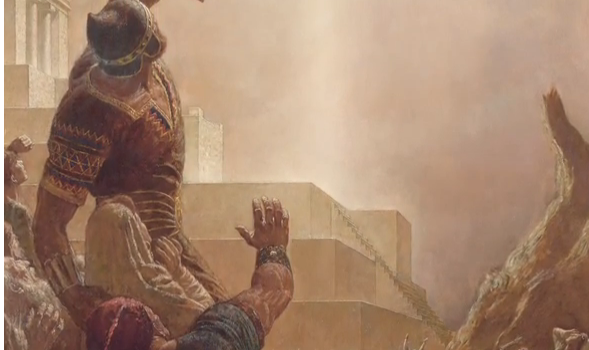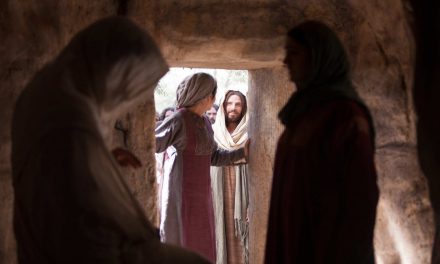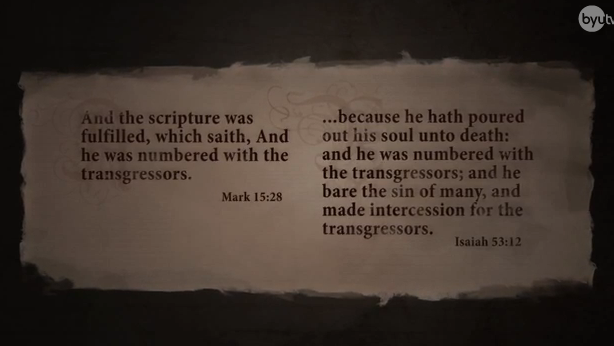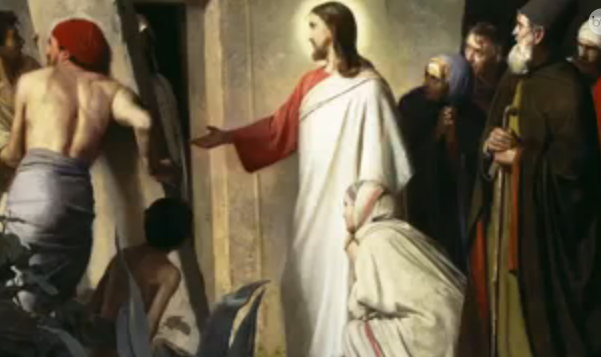S. KENT BROWN: Along these shores north of here, Jesus calls out to Simon Peter, and his brother Andrew, and to their partners, James and John. How did they respond? The text says, They straightway “forsook their nets, and followed him” (Mark 1:18). The account continues, “Jesus went all about Galilee teaching in their synagogues, preaching the gospel of the kingdom, and healing all manner of sickness and all manner of disease among the people” (Matthew 4:23). Hundreds, even thousands of people, flocked to this humble yet remarkable teacher from Nazareth, who heals the sick, gives sight to the blind, whose teachings astonish the wise and inspire the humble of heart. But, Jesus was not interested simply in gaining a following. It becomes abundantly clear that this man, the Lamb of God, possesses not only power to heal the sick, but authority, authority to baptize with fire and with the Holy Ghost, authority and mission to establish the kingdom of God on the earth.
ERIC D. HUNTSMAN: Sometimes trying to harmonize the different gospel accounts, and when the disciples were called, is an exercise in frustration. In the Gospel of John, He begins to assemble a small group of followers, in John chapter 1 very early on. But then the synoptics, you find the same people fishing and doing their normal tasks, and He has to call them to follow him. I often get the sense that these people knew Him. In fact some of them were connected to him by kinship ties. And so people may have begun to gravitate to Jesus, may even have begun to believe He was the Messiah, but that didn’t mean He had called them into full-time service, until He actually calls Peter and Andrew, James and John from their boats.
S. KENT BROWN: The organization of the church was very early, and at its top, at its summit, stood the apostles. Why? Because they’re the ones who are commissioned by the Lord. And in that sense they are unique. They’renot people whose authority is derivative somehow, but they’re people whose authority comes directly from Him. And they become His chief witnesses, certainly of the resurrection, and also of His mortal ministry.
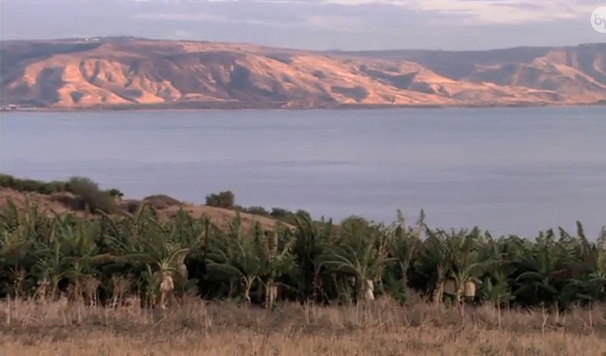 RICHARD D. DRAPER: It is interesting that of all of the names Jesus could have given—the title that He could have given to these men, He chose the word apostle. The word is Greek, apostolos. It’s related to the verb apostello. Apostello means “to send,” but it carries the idea of sending with a purpose.
RICHARD D. DRAPER: It is interesting that of all of the names Jesus could have given—the title that He could have given to these men, He chose the word apostle. The word is Greek, apostolos. It’s related to the verb apostello. Apostello means “to send,” but it carries the idea of sending with a purpose.
Then in the third century we have a very interesting tweak on the word, in that the Cynics, a group of philosophers, came along, who claimed that they were the true messengers from Zeus, and that their message was to be taken seriously, and so they called themselves the apostles. See, the sent ones and the commissioned ones. So from the third century onward, the name actually carried this idea of the divine and the commissioned. So it was perfect, a perfect word for Jesus to give to his apostles as their title. People would have picked up the idea immediately as to, these are the commissioned ones.
FRANK F. JUDD: As the Savior called his 12 apostles, He gave them power, it says in the King James Version. A better translation may be “authority”; He gave them priesthood authority to do what He had done. And so the emphasis is on the authority that He had transferred to them, that He had given them, that He himself possessed. We have reference to Paul in Acts chapter 14 ordaining elders in the churches. And the verb that’s used there means “to extend the hand,” which can mean to, to vote or sustain, but also to ordain. And so we assume that Paul and others were following a generally accepted practice within the church, and that is to ordain by the laying on of hands.
RICHARD D. DRAPER: The gospel of Phillip tells us that what we have here is not something Jesus had just observed, but something He himself had experienced. This was indeed a pattern, this is the way authority is brought down. The Father ordained—imposition of hands—the Son, then the Son—imposition of hands—ordains the leadership, who in turned ordained those whom they are called. And so it shows us that there is indeed a method by which the authority is given.
S. KENT BROWN: There’s a tiny theme that runs under this, and that is the sense that Jesus’ kingdom, Jesus’ house, is one of order, and that the order is carried on by physical, palpable, tangible acts which confer authority, which confer rights in the one receiving it. Luke gives us the earliest detailed account of the calling of the first four. They consisted of the two pairs of brothers—Peter and his brother Andrew, James and his brother John (Luke 5).
We’re told that Jesus had come to the shoreline of the Sea of Galilee. And there was a press of crowd who wanted to hear the word of God. So Jesus looks over here and he sees a couple of boats. And He climbs into one, which is Peter’s, and prays that he thrust out a little, and then He proceeds to teach the people from the boat. Now if Peter is here, he’s washing and fixing his nets and folding them over, over and so on; he hears the whole sermon.
At the end of the sermon, Jesus turns to Peter and says, Simon, “Launch out into the deep, and let down your nets for a draught.” Peter protests, and he says, “Master, we have toiled all the night, and have taken nothing: Nevertheless”—I like that—“nevertheless at thy word, I will let down the net” (Luke 5:4). Luke records, “When they had this done, they enclosed a great multitude of fishes, and their net brake” (Luke 5:6). So they hollered to their partners—there are James and John over there in the other, in the other boat, so they hollered to them to come over and help them, which they do. And you remember, the end of this is that they had such a huge haul of fish that they loaded these two boats up, and they both began to sink.
Jesus is now going to call these men away from their vocation. They’re fishers, that’s their livelihood. So what are their families going to do? Jesus leaves enough fishes to feed them for months, and which will allow them to sell fish for months. The problem is that within forty eight hours, all those fish will spoil. Until you come to a little note in Strabo, who is a geographer of this period, and he writes that just down the coast, along the west coast, you come to the town of Magdala. He calls it by a different name, but it’s the same place. And there was a fish salting industry there. All they have to do is row the boats down to this place, or sail them down there, and they can salt them, put them in brine, and pickle them, so that now the family has food for months. Plus they also have fish that they can sell in the market, in Capernaum and anyplace else. Jesus leaves the families taken care of. He provides for their needs. He’s calling away the breadwinners, He knows that, but He’s leaving something for the families. And I love this scene, to sense that they can brine all these fish, and their needs are met for months and months.
What the local leaders of Jesus’ time fail either to understand or accept, is that this preacher and healer from the back country of northern Palestine is Himself the very Messiah whom they so eagerly anticipate. Soon His opposition and His following would increase, and the reaction to His public ministry would intensify, and Jesus would spend the next three years of His life demonstrating that He is indeed the Lord of the Temple, of the Sabbath, of heaven and earth, of life and death. Can any good thing come from Nazareth? Jesus says, Come, and see.
The baptism of Christ marks the beginning of a remarkable ministry. After returning from the wilderness of Judea, Jesus manifests His power and authority. He heals the sick and the afflicted, chases merchants from the temple, and with the ordination of the twelve apostles, establishes His church on the earth. These men whom the Savior calls and endows with power and authority from on high will be the leaders of His church once the final phase of His earthly ministry is fulfilled.

